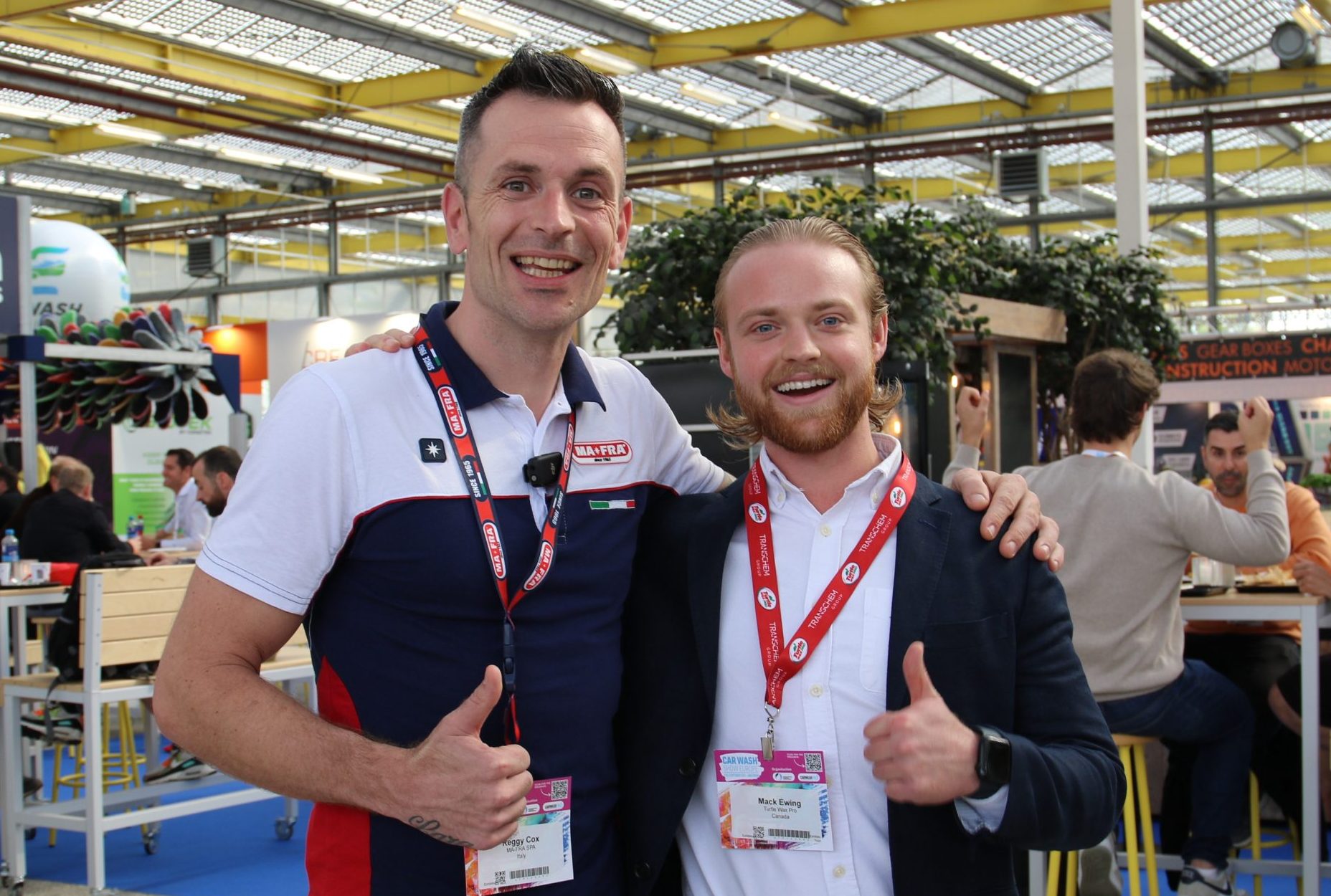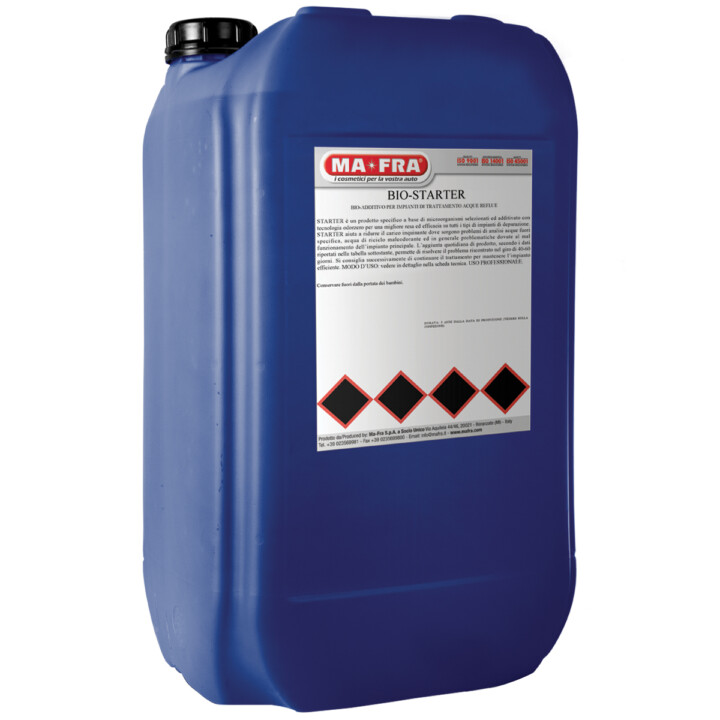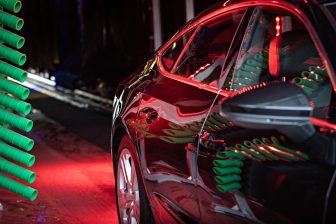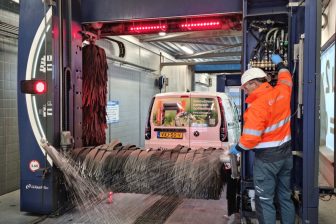
Sustainable chemistry without losing performance
The chemistry used in car washes has become considerably more sustainable over the years. But there is still much to be gained. How do you ensure that sustainability does not come at the expense of experience and performance? During the Car Wash Show Europe, we asked chemical suppliers Turtle Wax Pro and Ma-Fra.
Why is it important to be sustainable in the area of chemistry?
Mack Ewing (Turtle Wax Pro): “It’s pretty easy to clean a vehicle if you use harmful acids or heavy chemicals. But that chemistry is usually not good for the environment, nor is it good for the health of the people who work with it.
So, we’re looking at opportunities for innovative chemistry. That is, developing chemistry based on ingredients that are sustainable, good for the environment in which we work and that still allow us to perform very effectively.”
“Because that’s ultimately the most important factor of chemistry: it has to work well. So when we think about chemistry, it’s about performance first. From this, we work our way back. How do we make a product which is very sustainable and does not hurt our environment? And how does it remain a product that we can be proud of?”
Reggy Cox (Ma-Fra): “When we look at chemicals, it’s important to be ahead of the curve. For example, three years ago we removed all PFAS from our products. There is currently no solution for removing PFAS (out of the environment), so we would rather prevent it before it becomes a real problem.”
Three years ago we removed all PFAS from our products. We rather prevent its use before it becomes a real problem.”
Ewing: “As suppliers, I think we also have a leading role in that. To anticipate developments and make changes even before it gets regulated. If you’re going to wait for regulation, you’re going to have to rush to make a product differently. And if you have to make an effort to change a product, it will certainly reduce the quality of the product.”
Cox: “Some companies see regulations as a ball & chain on their feet. But on the other hand, it also forces you to make better chemistry. You can see regulations as something negative, but you can also turn them into something positive. After all, you choose quality and safety, rather than fast, easy, simple and cheap.”
text continues under photo

What are the challenges?
Ewing: “When we talk about performance in a car wash, you often hear the word ‘theater experience’ in North America. When we think of a theater experience in a car wash, we’re usually talking about the color of the soap and the smell of the products. But when you use a lot of dyes, it’s hard to develop it in a way that it’s biodegradable within a short period of time. And make it in such a way it complies with regulations.”
“When recycling the water, dyes can also make the process more difficult. You could then say ‘well, adjust the recycling system accordingly’. But you can also start thinking about how to create a theatrical experience with undyed products that still have a wonderful, strong scent. One of our most popular products is ICE. It’s a mango-scented product, but it’s designed to be completely clear. Instead of dyes, we use LED systems in the car wash to achieve the beautiful effect. Combined with the fragrance, the customer still gets a great experience in the car wash.”
“That’s what we’re looking at now: how do we make sure that experience matches performance, and how do we make products that are good for the environment? Together you have to look at how you can perform on these three important points, without making a wash much more expensive.”
Cox: “The customer not only gets a clean car, but also the experience, the color, smell and lava foam, all in a clean car wash. That possibly makes it easier for the business owner to raise the price for a wash. And ultimately, it will pay off more when investing in better, more sustainable quality chemistry, rather than focusing on countering the effects of cheap and easy products.”
When you look at making chemistry more sustainable, you can also think about minimizing the carbon footprint when delivering products or reducing plastic packaging. How do you guys look at that?
Ewing: “Ever since we built our company, we have focused on hyper-concentrated products. That’s the terminology we use. Some companies use ultra-concentrated, others say double-concentrated. These are really all marketing terms for “really strong soap. Our chemistry can be used in a very small, efficient and effective dose. You don’t need much of it for the most optimal results. And that also means that our chemistry can be delivered in small, compact containers. This not only reduces the amount of plastic, but it also prevents problems when it comes to worker safety. They don’t have to lift or move large heavy packages.”
Cox: “At Ma-Fra, we changed some locations because we found that the transportation of raw materials was not efficiently set up. So we established two new facilities, one in India and one in Kazakhstan. Here, we reinvented the formula and looked for local suppliers for raw materials. This improved the process and allowed us to make a huge reduction in shipping costs.”
Is it profitable to deal with sustainability in this way?
Ewing: “We have to look at sustainability as a way to make everyone more profitable and successful. For example, look at water recycling. It can save a lot of money, and that’s ultimately the main reason companies look for recycling systems. Putting regulations aside for a moment. And while profit can be the extra incentive, it really does make our industry more sustainable and efficient.”
Cox: “Ultimately, it’s a combination of factors that makes it profitable. It’s not one thing you have to look at. You replace the chemistry, choose the right technology and fuel-efficient equipment, but also look at the user themselves, for example.”
text continues under photo

Is it important for everyone in the car wash industry to be committed to sustainability?
Ewing: “Everyone can think about sustainability from their own role and the core values you want to put forward as a company. And how you can link that to competition and increased profitability so that you enable the company to capture a larger market share.”
“I think in the future, increasing market share and balancing sustainability will increasingly go hand in hand. There will always be a connection between being better for the environment we work and live in and being more successful as a company. But if you can put that together, we will get to a point much faster than we have been in the last few decades.”
Also read:



